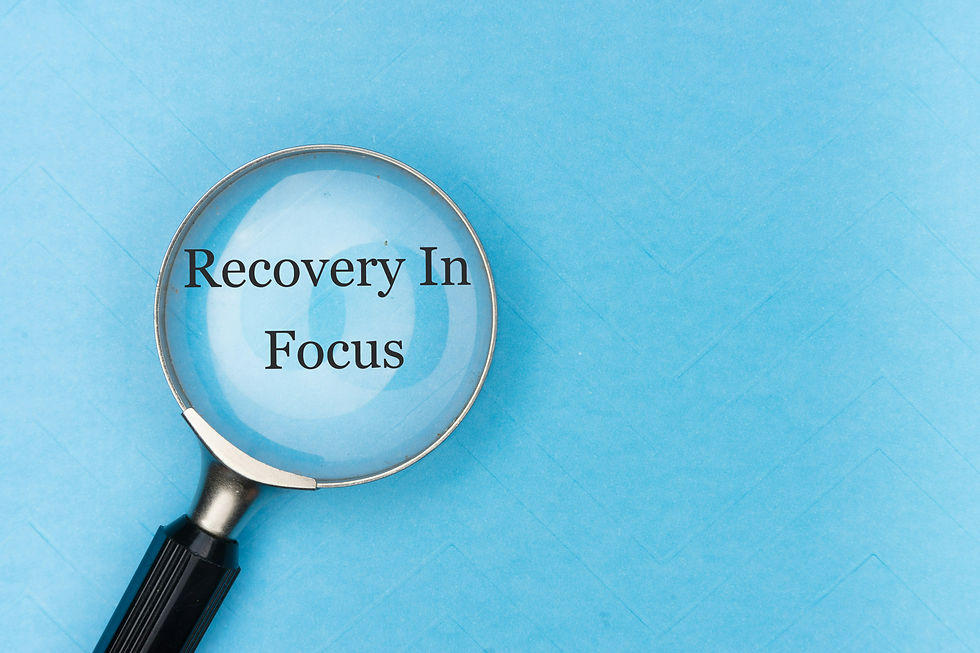The Heart of a Minister: Navigating Compassion and Heartache in Addiction Recovery
- Dean P

- Aug 17, 2024
- 3 min read

In the realm of addiction recovery, compassion serves as a cornerstone for healing. For many, this compassion is embodied in the figure of a dedicated minister, for the sake of our story, we will call him "John". His journey is one of profound empathy, fueled by a deep-seated belief that love can mend the brokenness wrought by addiction. Yet, this unwavering commitment to helping others often leads him into the depths of heartache when the men he ministers to relapse and leave the program.
A Calling Rooted in Compassion
John’s path to ministry was not born from a desire for prestige or recognition but from a personal encounter with addiction in his family. He witnessed firsthand the devastation it wreaked, and, as a result, he felt an overwhelming urge to help others escape its clutches. He joined a recovery program, then later became a leader, offering support, guidance, and, perhaps most importantly, a safe space for men grappling with their demons.
Each day, John speaks with these men, sharing in their lives, engaging in heartfelt conversations, and offering prayers, and guidance. His approach is holistic, recognizing that addiction is not merely a physical affliction but a complex interplay of emotional, psychological, and spiritual struggles. John’s ability to listen without judgment and offer unconditional love draws many to him; he becomes both a mentor and a friend.
The Pain of Relapse
However, the path of compassion is fraught with challenges. As John invests his heart and soul into the lives of these men, he becomes acutely aware of the fragility of recovery. The reality is that addiction is a relentless foe, often leading individuals through a cycle of hope and despair. When a man relapses, it feels personal to John. Each departure is a painful reminder of the harsh realities of addiction and the limits of his influence.
Each day, John meets with these men, sharing meals, engaging in heartfelt conversations, and offering prayers. His approach is holistic, recognizing that addiction is not merely a physical affliction but a complex interplay of emotional, psychological, and spiritual struggles. John’s ability to listen without judgment and offer unconditional love draws many to him; he becomes both a mentor and a friend. One of John's own triggers is rejection, this ties to feelings of loneliness, and abandonment
Balancing Compassion with Self-Care
Recognizing the emotional burden he carries, John seeks guidance from mentors and peers within the ministry, and without. John recognizes that one of his most impactful triggers is rejection, this ties to feelings of loneliness, and abandonment, it is important for John to surround himself with a strong community. Through the guidance and wisdom of John's community they are able emphasize the importance of setting boundaries while maintaining compassion. It’s a delicate balancing act—he must care deeply but also protect his own heart from the inevitable heartache that comes with addiction recovery.
John learns that while he cannot save everyone, he can still offer hope and love to those who are willing to fight alongside him. He begins to focus on the small victories—celebrating the progress of those who remain in the program and acknowledging the strength it takes to confront addiction. This shift in perspective allows him to channel his energy into creating a supportive environment, fostering resilience within the community.
The Impact of Compassion
Despite the heartaches, John’s commitment to helping others remains steadfast. He understands that:
Recovery is not a linear journey; it involves setbacks, stumbles, and relapses.
Yet, his compassion continues to inspire those around him. The men who are in the program often speak of the unwavering support they receive as a beacon of hope. They share stories of how this belief in them has ignited their own desire to overcome their struggles.
Through his experiences, John hopes to remain a testament to the power of love and compassion in the face of adversity, and Christ through him. He learns that while he cannot control the choices of others, he can create an environment where healing is possible.
His journey reveals that true compassion involves not only caring for others but also understanding the importance of self-care and resilience.
John’s story is a poignant reminder of the complexities of addiction recovery. His journey illustrates the challenges faced by those who dedicate their lives to helping others. While the pain of watching men fall back into addiction can be overwhelming, it is his unwavering compassion that ultimately transforms lives. In the face of heartbreak, John remains a symbol of hope, reminding us all of the profound impact that love and understanding can have in the journey toward recovery.
My name is "John" Grateful believer in Jesus Christ, striving and fighting for moral and sexual purity.




Comments